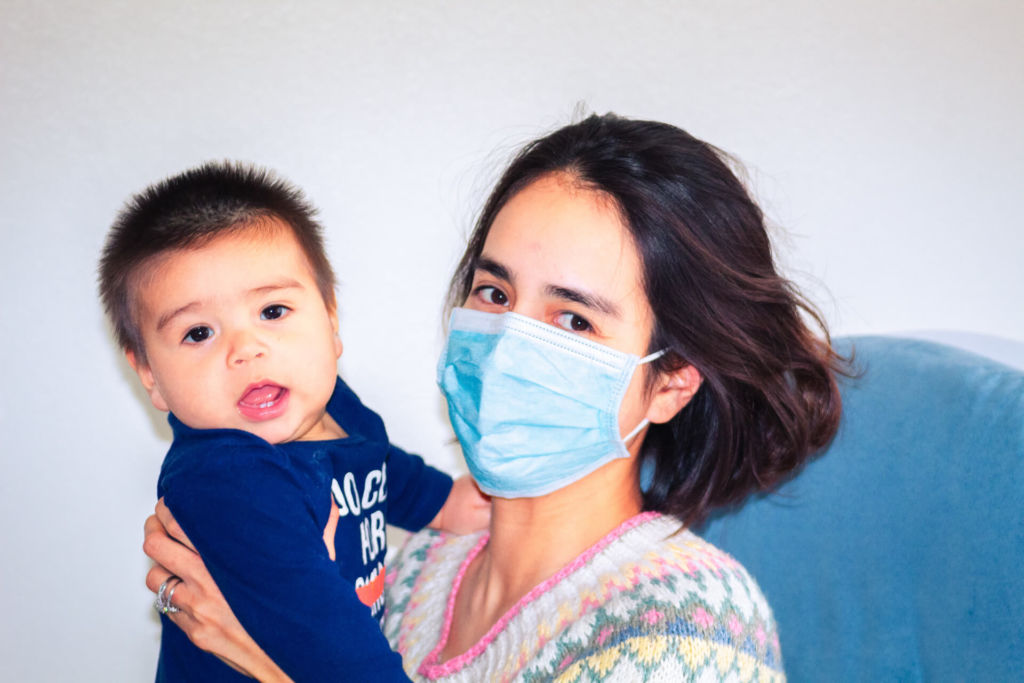The stress of giving birth under lockdown
Tháng Tư 21, 2020 2020-04-21 3:23The stress of giving birth under lockdown

The stress of giving birth under lockdown
Having a baby is always nerve-racking – and women now have unexpected worries to contend with. New mothers share their stories of ‘incredible’ midwives, and the joy and pain of giving birth during a pandemic
Helen Simmons, a 28-year-old film producer from London, went into labor with her second child on the evening of 30 March – exactly a week after Boris Johnson announced a nationwide lockdown. “It felt like a 1960s-style birth,” she jokes.
She arrived at the Royal Free hospital with her husband, Charles, at 5.30am the following day. “We were hoping for the best,” Simmons says. Instead, Charles was sent home because of new visitor restrictions brought about by the outbreak, and Simmons was sent to a labor ward on her own. She was hungry – she hadn’t brought brought enough food with her – so Charles dropped some off and stayed with her for a few hours before being ordered to leave again.

For the next 10 hours, Simmons was in labour alone and Charles was relegated to a waiting room outside, like a Mad Men-era husband. It was tough. “The hardest bit of labour isn’t the pushing,” Simmons says. “It’s the contractions. And doing that alone … you don’t realise you need your partner so much, emotionally and physically, until you can’t have that person there with you.”
After a 30-hour labour, the majority of that time spent alone, their daughter, Isla, was born on 1 April at 4.40am. Charles was allowed in to watch Isla being born before being ushered out. It certainly wasn’t the birth they had hoped for or planned. Yet Simmons feels the experience meant she discovered an inner strength she hadn’t known she had. “It gave me a newfound respect for women through history,” she says.
As the coronavirus pandemic continues, pregnant women across the country will be wondering how it will affect them. “It’s an anxious time for pregnant women,” says Maria Booker of the charity Birthrights. “They are concerned about whether their partner can stay with them or what the birth will be like.”
At the moment, according to official guidance, no British woman should have to give birth alone. “Visiting is restricted to help stop the spread of coronavirus,” says NHS England, “but our guidance is absolutely clear that a specific exception should be made for birthing partners when a woman is in labour.” The Royal College of Midwives (RCM) guidelines state that partners may not be able to accompany women during their induction and the early stages of labour because of physical distancing guidelines. But it adds: “At the point you go into active labour, you will be moved to your own room and your birth partner will be able to join you.” Provided, of course, they are not showing any signs of illness. No visitors are allowed post-birth.
But there is a degree of confusion about how the rules are being enforced by different trusts. Simmons spent most of her labour alone, but others have partners with them throughout. A business owner from London, Naomi Edmondson, 29, gave birth to a baby boy at St Mary’s hospital in Paddington on 31 March. Her husband, Ally, was allowed to stay with her throughout her planned C-section.
What may be noticeable to mothers giving birth, however, is that hospitals seem emptier. A recent survey by the RCM found that 20% of midwife roles are currently unfilled because of self-isolation, coronavirus or existing staff shortages. Last week, Lynsay Coventry, 54, died at the Princess Alexandra hospital in Harlow, Essex. She was the first midwife to die of Covid-19, showing the risks healthcare professionals are taking when carrying out their jobs.


